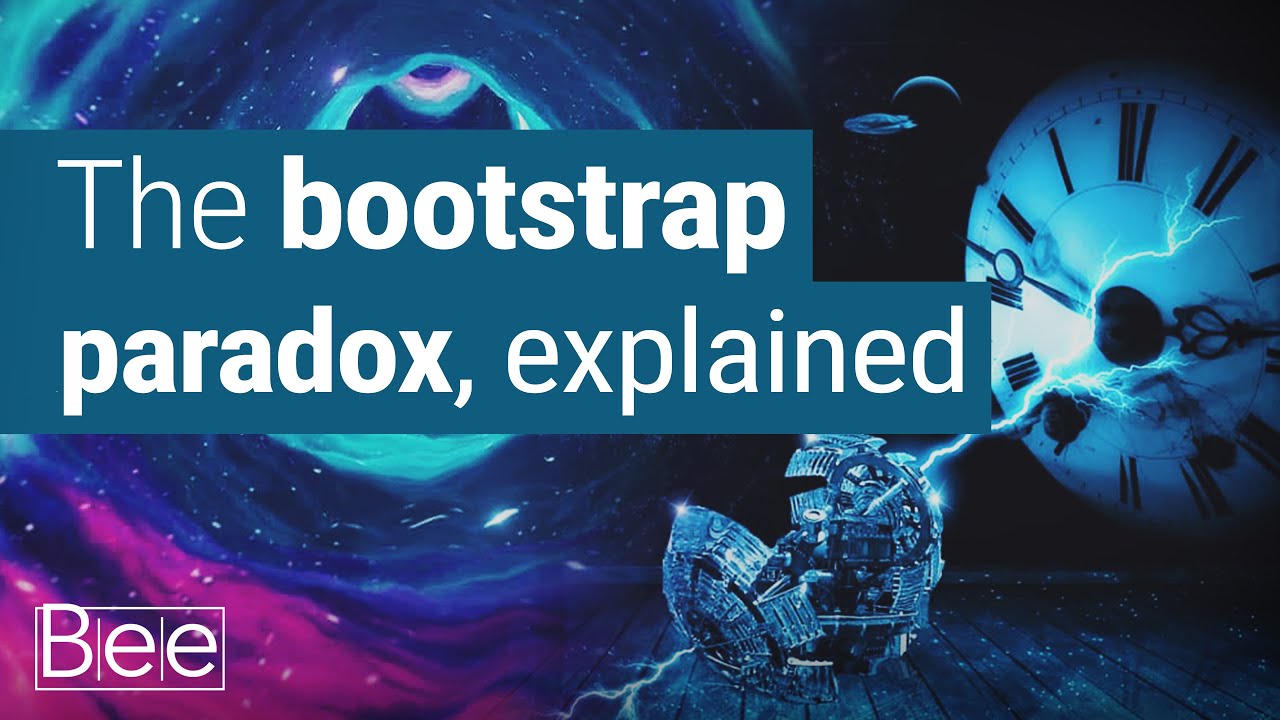
Sometimes, when we study science, we encounter paradoxes that challenge our understanding of reality. One such fascinating paradox is the Bootstrap Paradox, which questions our conventional notions of time and causality. This concept suggests that time travel could create loops and paradoxes that defy the linear progression of the past, present, and future. Let’s delve into the Bootstrap Paradox and explore its implications for our understanding of time.
What is the Bootstrap Paradox?
The term “Bootstrap Paradox” originates from an 1834 expression that implies performing an impossible task, such as pulling oneself over a fence by one’s bootstraps. In the context of time travel, the Bootstrap Paradox refers to a situation where information, a person, or an object sent back in time creates an infinite loop with no clear origin. It is also known as an ontological paradox.
To grasp this concept, let’s consider a hypothetical scenario:
Imagine a boy named Albert, who is an enthusiastic physics student and a great admirer of Albert Einstein. He builds a time machine and travels back in time to meet his idol. Upon arriving, he discovers that no one in Einstein’s neighborhood has ever heard of Einstein. Strangely, Albert realizes that he possesses a notebook containing all of Einstein’s theories and equations. In a twist of fate, Albert rewrites and publishes these theories under the name “Albert Einstein,” eventually becoming the Einstein we know today. This creates a paradox: without Einstein, Albert wouldn’t have had the theories to bring back in time, yet without Albert, Einstein wouldn’t exist.
Challenges to Our Understanding of Time
The Bootstrap Paradox disrupts our conventional understanding of time, where the past influences the present, which in turn affects the future. In this paradox, the future causes events in the past, creating a loop that defies linear causality. This idea challenges the flow of time as a straight line, suggesting instead that time travel could result in causal loops where events, information, or objects seem to emerge spontaneously without a clear origin.
Implications for Free Will and the Multiverse
The Bootstrap Paradox also raises questions about free will. If our actions are part of a time loop, do we genuinely have the freedom to make independent choices, or are our decisions predetermined by the loop? One popular theory to address this issue is the Multiverse Theory. According to this theory, time travelers do not actually travel back in time but instead move to another universe within a multiverse. This allows them to act freely in a different universe without affecting their original timeline.
Violations of Physical Laws
The Bootstrap Paradox presents significant challenges to fundamental physical laws, particularly the Second Law of Thermodynamics, which states that the entropy (disorder) of a system will either remain constant or increase over time. An object caught in a time loop would experience changes in entropy each time it cycles through the loop, yet it lacks a clear origin, making its entropy state ambiguous and problematic.
The Debate on Time Travel
Prominent scientists like Brian Cox and Stephen Hawking have argued that time travel to the past is impossible due to paradoxes like the Bootstrap Paradox. Hawking, in particular, suggested that there must be a law of nature preventing time travel to the past to avoid these paradoxical situations. While time travel to the future is theoretically possible and even demonstrated by the effects of relativity on clocks in space, time travel to the past remains a contentious and seemingly unattainable concept.
Conclusion
The Bootstrap Paradox challenges our understanding of time, causality, and free will by introducing the concept of self-existing objects or information that create closed loops in time. This paradox raises intriguing questions about the nature of choice and the possibility of multiverse travel. While it remains a theoretical concept, the Bootstrap Paradox serves as a thought-provoking exploration of the complexities and mysteries of time travel.



